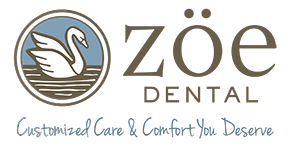The Safety & Benefits of Dental X-Rays
Dental X-rays, or radiographs, are used as a diagnostic tool. X-rays allow top Asheville dentists like us to look beneath the surface so we can examine the health of your teeth and mouth. If you’re prone to cavities or other maladies, we can point an X-ray at the right section of your mouth to reveal a problem before it becomes evident… and painful.
Dental radiograph technology has come a long way. Now the X-ray machines limit your exposure to radiation to the bare minimum needed to take the picture. In fact, there’s an acronym for the amount of radiation: ALARA (as low as reasonably achievable). If you’ve had a dental X-ray recently, you know it’s a very targeted machine that sends a tiny pulse through your cheek at a piece of film not much larger than one inch long.
But Is It Safe?
If you’ve ever wondered why dental hygienists conveniently disappear from the dental examination room when your X-rays are about to be taken, fear not. It’s not because you’re being exposed to dangerous doses of radiation. An X-ray in a top Asheville dentist office uses less radiation than a conventional X-ray machine in a hospital. With your lead vest in place, you could have a dozen or more X-rays and not experience any side effects.
On the other hand, our dental hygienists may take a hundred X-rays in a day. That kind of exposure is not healthy over the course of a week, a month or a year; therefore, we leave the room for your X-rays. It’s for our protection, not because we fear for yours. Anyone who works with medical radiation machines must limit exposure to 50 millisieverts (mSv) per year. By comparison, we’re all exposed to 6.2 mSv per year in our normal day-to-day lives.
To be completely honest, however, even these very low levels of radiation are potentially harmful, although the risks are very small (smaller than the risks of not having X-rays). Like other top Asheville dentists, we use X-ray tools and techniques to limit your exposure, like draping a lead vest over your torso. The procedure is safe even for pregnant women.
How Often Do We Need X-Rays?
Some top Asheville dentists agree to disagree on this question. Some prefer to be aggressive with X-rays to deter worse dental damage and disease. This aggressiveness is often a product of experience. We evaluate each patient and act accordingly. If you have a history of disease or decay, getting dental radiographs makes sense as a precautionary procedure. Furthermore, if you’re a new patient, we often take X-rays as a baseline for future comparison.
Whether or not you should have dental X-rays depends on your age, health, risk and symptoms. Children may need X-rays more frequently than adults because their teeth and bones are still developing. Older adults who have symptoms of oral disease may need more frequent X-rays to detect and treat dental problems.
There is no single answer to the question, “How often should you get X-rays?” Adults who are not susceptible to cavities and are otherwise healthy may only need dental radiographs every two or three years. Children may need them once a year. Others fall somewhere in between. The best answer is to find a top Asheville dentist you trust and ask. Good dentists — like us here at Zöe Dental — have your best interests at heart.
—The Zöe Dental Team
